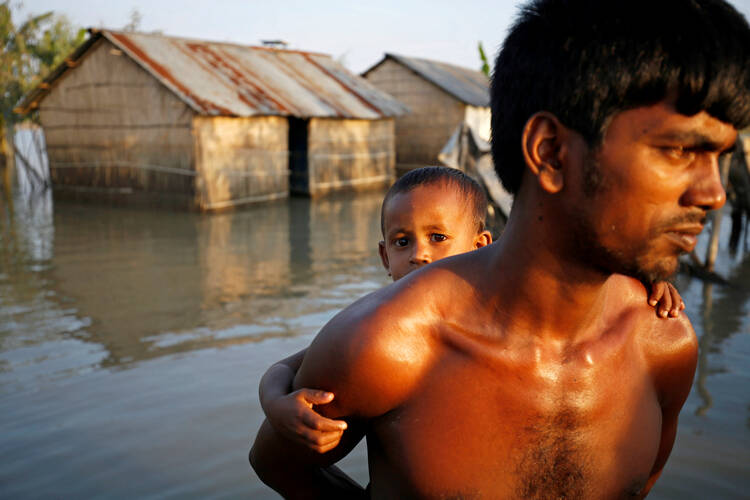Some of my fondest memories growing up in southern Nevada include exploring with my family the ruby sandstone outcrops at Red Rock Canyon and the Valley of Fire and the dramatic alpine trails and seasonal waterfalls of Mount Charleston. From an early age, these otherworldly landscapes exposed me to the wonders of the natural world and taught me to appreciate and respect the magnificence of the Lord’s creation. With this sense of respect also came the profound understanding that, as Catholics, we are to steward the land, the creatures that inhabit it and the environment that sustains life.
Exposure to the wonders of the natural world taught me to appreciate and respect wholeheartedly the magnificence of the Lord’s creation.
Environmental stewardship is nothing new to the Catholic faith. From the Old Testament to Pope Francis’ “Laudato Si’,” our faith has recognized and treasured mankind’s intimate relationship with the earth and all the life that calls it home. Additionally, St. Francis of Assisi—whose “Canticle of the Sun” is the origin of the title “Laudato Si’”—is often revered for his patronage of the environment and animals.
My Catholic faith guides me and imbues the principles I hold in protecting and preserving God’s creation. As a U.S. senator, I strive to bring this faith to my work and allow these principles to guide me as I consider the best way to influence public policy and create laws with my colleagues.
Safeguarding our common home is not only essential to protecting endangered species and preserving old-growth forests, it is also paramount to ending poverty, fighting injustice and protecting the long-term survival of humankind and of our faith.
Bangladesh, home to 163 million people and one of the world’s poorest countries, is already a third under water from floods.
The reckless contamination of our air, water and soil has reached crisis levels. In recent years, our planet has been warming at an alarming rate and seen record-breaking temperatures. We are now witnessing the sixth mass extinction event in the earth’s geologic history. Our sea levels are rising at an alarming rate, threatening our largest cities, like New York, Los Angeles and Miami. These changes affect the most vulnerable nations worldwide. Bangladesh, home to 163 million people and one of the world’s poorest countries, is already a third under water from floods.
Without a healthy environment, how can we address the devastating effects of climate change on these nations? My faith has shown me that we are all part of an interrelated whole through Christ. If our climate breaks down it will cause additional breakdowns of global supply chains that provide medicine to the sick, and it will create droughts that will lead to even greater outbreaks of famine across the world. As Christians, we are responsible for our fellow brothers and sisters suffering and fighting for the basic resources we all need to survive.
As U.S. citizens, fellow human beings and Catholics, we cannot stand idle as our country contributes to the ecological destruction of our planet.
To deny this is to turn a deaf ear to God’s teachings. As Pope Francis has expressed, we must focus less on maximizing profits and more on what nourishes the spirit. Our care for the environment must be central to those ideals, and the United States must lead in that mission. Our country’s withdrawal from the Paris climate accord, the threatened opening of the Arctic National Wildlife Refuge to oil and natural gas drilling, the revocation of the Clean Power Plan and the increasing threats to U.S. national parks has placed the United States diametrically at odds with the values of the Catholic faith and Catholic Americans.
As fellow U.S. citizens, human beings and Catholics, we cannot stand idle as our country contributes to the ecological destruction of our planet, nor can we accept it when our leaders try to stymie the progress of the rest of the world. Despite the tragic state of our environment, there is hope. In the face of the grim reality that our world faces, I do not despair. I take solace in the Gospel.
I hope that together we do not despair. We must act decisively for the sake of our children, family and neighbors. The pope, in “Laudato Si’,” provides us with a guide that rededicates us to our faith and sets the path forward for us all. It would be too costly for us to ignore its message.










